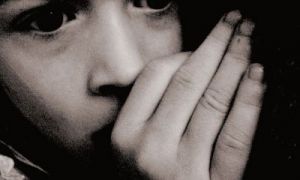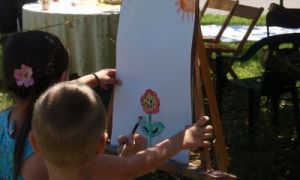

Social Constructivist Theory in Early Childhood Education is a learning approach grounded in the idea that children actively construct knowledge through their social interactions and cultural experiences. Rather than viewing learning as an individual process of acquiring information, social constructivism emphasizes that children build understanding through communication, collaboration, and shared experiences. The following article provides information on Key Concepts, Applications In Early Childhood, Modern Relevance In Childcare and more.
Behaviourism is a learning theory developed by psychologists B.F. Skinner and John Watson, focusing on how behavior is shaped through reinforcement. It is based on the idea that children learn through stimulus-response interactions, where positive and negative reinforcement influence behaviours. The following article provides information on Key Concepts, Applications In Early Childhood, Modern Relevance In Childcare and more.
Supporting a toddler with challenging behavior requires a combination of strategies and resources tailored to their developmental stage. The following article provides information on Strategies To Support Toddlers With Challenging Behaviour, Positive Reinforcement For Toddlers, Teaching Emotional Regulations To Toddlers and more.
Some children find it difficult to process the information received from their senses. Those who feel sensory inputs too intensely – like colours appearing excessively bright or fruits tasting too grainy – can become sensory sensitive or sensory avoidant. The following article provides calm-down strategies for over-responsive children that you can use within the learning environment.
Anxiety is one of the most common reasons why children don’t want to leave home and their families. If not addressed at the right time, it can worsen into a debilitating condition, seriously affecting learning too. The following article provides information on identifying and supporting children with anxiety.
Behaviour management can be challenging sometimes, with energetic toddlers and young children eager to explore their physical and social environment. The following article provides positive guidance strategies and is how Educators can implement them within the learning environment.
No child is behaves in one way all the time, but psychologists agree that each has their own usual type. This is usually reflected in the way parents or close family members describe the child since their infancy; for example, ‘Sandra is very easygoing’ or ‘Rodney likes routines’. Such differences are clues to different temperaments that human beings are born with. The following article provides information on What Is Temperament, Understanding Temperament, Teaching Strategies and more.
Calming down an angry child is important as it helps to enhance awareness about their feelings and also helps to balance their emotional development. The following article provides 10 strategies to handle an angry child.
The Anger Management Posters are great to display in a calm-down area to show children how to regulate their emotions when feeling overwhelmed or angry. Children can choose a task to do from the poster and when completing the task it will help them to calm down. These posters can also be added to a display folder that children can flip through and complete when they need some time to themselves.
 Toddlers have a greater understanding of the world around them by this stage. Their cognitive development (also known as intellectual development and thinking skills) continues… Read More
Toddlers have a greater understanding of the world around them by this stage. Their cognitive development (also known as intellectual development and thinking skills) continues… Read More
 Infants begin to develop trust when parents begin to fulfil their needs. Such as changing an infant's nappy when needed, feeding on request and holding… Read More
Infants begin to develop trust when parents begin to fulfil their needs. Such as changing an infant's nappy when needed, feeding on request and holding… Read More
 Beginning at birth the construction of thought processes, such as memory, problem solving, exploration of objects etc, is an important part of an infant’s cognitive… Read More
Beginning at birth the construction of thought processes, such as memory, problem solving, exploration of objects etc, is an important part of an infant’s cognitive… Read More
 Toddlers want to do more on their own and do not like it when you begin to establish limits on their behaviour. Tantrums can become… Read More
Toddlers want to do more on their own and do not like it when you begin to establish limits on their behaviour. Tantrums can become… Read More
 Your preschooler is now able to focus their attention more accurately and is less influenced by distractions. The intensity of questions increase as your child… Read More
Your preschooler is now able to focus their attention more accurately and is less influenced by distractions. The intensity of questions increase as your child… Read More
 John Dewey is often seen as the proponent of learning by doing – rather than learning by passively receiving. He believed that each child was active,… Read More
John Dewey is often seen as the proponent of learning by doing – rather than learning by passively receiving. He believed that each child was active,… Read More
 Toddler advance and gains new skills in Gross Motor Development milestones achieved throughout earlier years. Co-ordination and challenges that could not be performed before such… Read More
Toddler advance and gains new skills in Gross Motor Development milestones achieved throughout earlier years. Co-ordination and challenges that could not be performed before such… Read More
 Erik Erikson developed a psychosocial theory to understand how we each develop our identities through eight stages of psychosocial development from infancy to adulthood. The… Read More
Erik Erikson developed a psychosocial theory to understand how we each develop our identities through eight stages of psychosocial development from infancy to adulthood. The… Read More
 At this point preschoolers begin to interact effectively with others. Play becomes more innovative and organized and “boyfriend” or “girlfriend” begins to emerge. Preschoolers have… Read More
At this point preschoolers begin to interact effectively with others. Play becomes more innovative and organized and “boyfriend” or “girlfriend” begins to emerge. Preschoolers have… Read More
 From now, babies begin to identify and respond to their own feelings, understanding other's feelings & needs and interact positively with others. A baby's social and… Read More
From now, babies begin to identify and respond to their own feelings, understanding other's feelings & needs and interact positively with others. A baby's social and… Read More

When you were little were you ever afraid of the dark? Or small creepy insects?...
See more...
Fine motor skills have improved during this point, with increased concentration and patience. These improvements...
See more...
Supporting a toddler through moments of heightened emotion requires patience and thoughtful strategies. Here are...
See more...© 2009-2025 Aussie Childcare Network Pty Ltd. All Rights Reserved.
